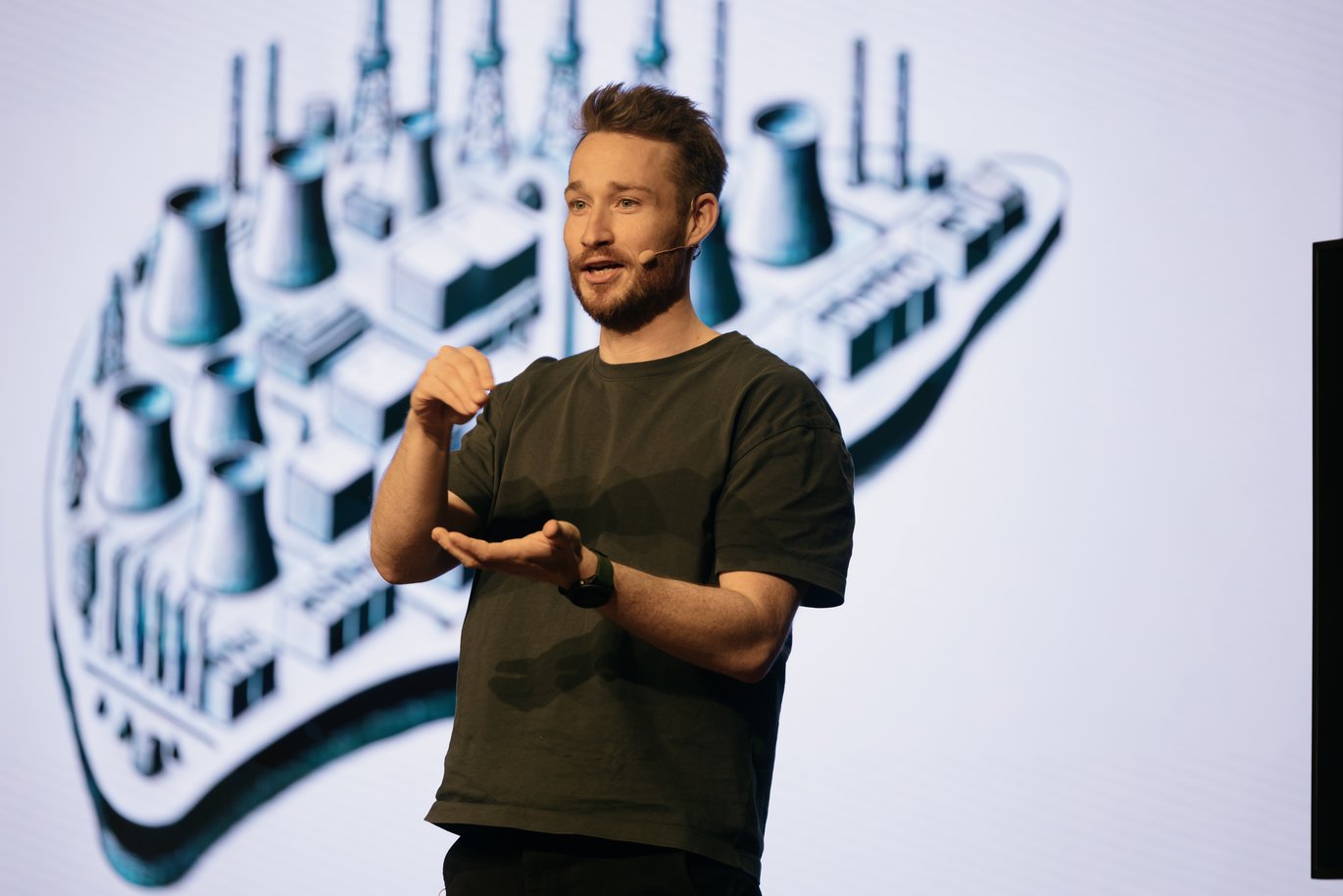AU PhD student advances to the finals of international PhD competition
Uffe Kjærgaard, who won the 3 Minute Thesis PhD competition at AU in March, has qualified for the international final in Bologna in June. This is the third time a PhD student from AU has made it to the final. The other two won, so the pressure is on.

Watch the final live
The final of the Coimbra Group 3 Minute Thesis will take place in Bologna, Italy on 12 June at 13:45-14:00 and will be live streamed via the Coimbra Group website.
This year's finalists are:
- Bianca Brandl, University of Graz
- Almudena Moreno Borrallo, Trinity College Dublin
- Uffe Kjærgaard, Aarhus University
The winner will receive €2,000, while the other two finalists will each receive €1,500.
Once again, a PhD student from Aarhus University has advanced to the international final of the Coimbra Group PhD competition 3 Minute Thesis. Coimbra Group is an association of 39 European universities, including Aarhus University. Every year since 2017, the association has organised 3 Minute Thesis, which, as the title suggests, involves participating PhD students presenting their PhD project in just three minutes, with one slide to rely on and no notes or props.
In March, the local 3 Minute Thesis was held at Aarhus University, where PhD student at the Department of Clinical Medicine Uffe Kjærgaard won the competition and a travel grant of DKK 35,000.
"I make sugar magnetic and by doing so, I will completely change the way we look at and understand liver cancer."
This is how Uffe Kjærgaard opened his three minutes at AU. He goes on to explain that a cancerous liver consumes sugar in a completely different way than a healthy liver. And when the liver is exposed to magnetised sugar, an MRI scan will show 20,000 times more clearly how a cancerous liver uses the sugar. This technology could be used to diagnose liver cancer earlier, monitor the liver's response to treatment and give patients a better chance of survival.
Three Minute Thesis at AU: 17 PhD students whipped the audience through a marathon of knowledge
Chosen from 28 participants
Uffe Kjærgaard's presentation has been chosen along with two others from the 28 participants in this year's competition.
"I’m really proud of it, and it’s a huge opportunity to present my work over the next three years to a broad, international audience," Uffe Kjærgaard says.
The selection process involves each participating university awarding 1, 2, and 3 points to their preferred candidates. On 12 June, Uffe Kjærgaard will compete against Almudena Moreno Burrallo from Trinity College Dublin and Bianca Brandl from University of Graz.
A slightly daunting statistic ...
Twice before, a PhD student from Aarhus University has advanced to the international final. In 2022, Omeed Neghabat from the Department of Clinical Medicine advanced to the final, and in 2023, Ida Cecilie Jensen from the Institute of Ecoscience. Both ended up winning the final. In June, Uffe Kjærgaard will have the opportunity to do the same. And that creates a certain pressure, he admits:
"That's a slightly daunting statistic, but I have to do my best to follow in their footsteps," he laughs, pointing out that the PhD students participating in the 3 Minute Thesis at AU receive strong support through coaching and workshops.
"The fact that three of us from AU have made it to the international final must also mean that they're doing something right."
Exactly how he will prepare for the final, he doesn't know yet.
"Not apart from the fact that I need to rehearse my presentation, of course."
Handing in thesis in September
Uffe Kjærgaard will hand in his thesis in September, where he will present the use of the advanced MRI scanning technique that can measure metabolism in different organs, specifically used in the early diagnosis of liver cancer.
Specifically, a sugar molecule, which has magnetic properties, is injected into patients' veins while they lie in an MRI scanner.
"This allows us to see where in the body the sugar travels and whether it is converted into lactic acid or amino acid," says Uffe Kjærgaard.
"What we can see is that a liver with cancer has a different metabolism than a healthy liver, and hopefully in the near future we will be able to start using the technology in the assessment of patients," he concludes.
This text is machine translated and post-edited by Cecillia Jensen.

